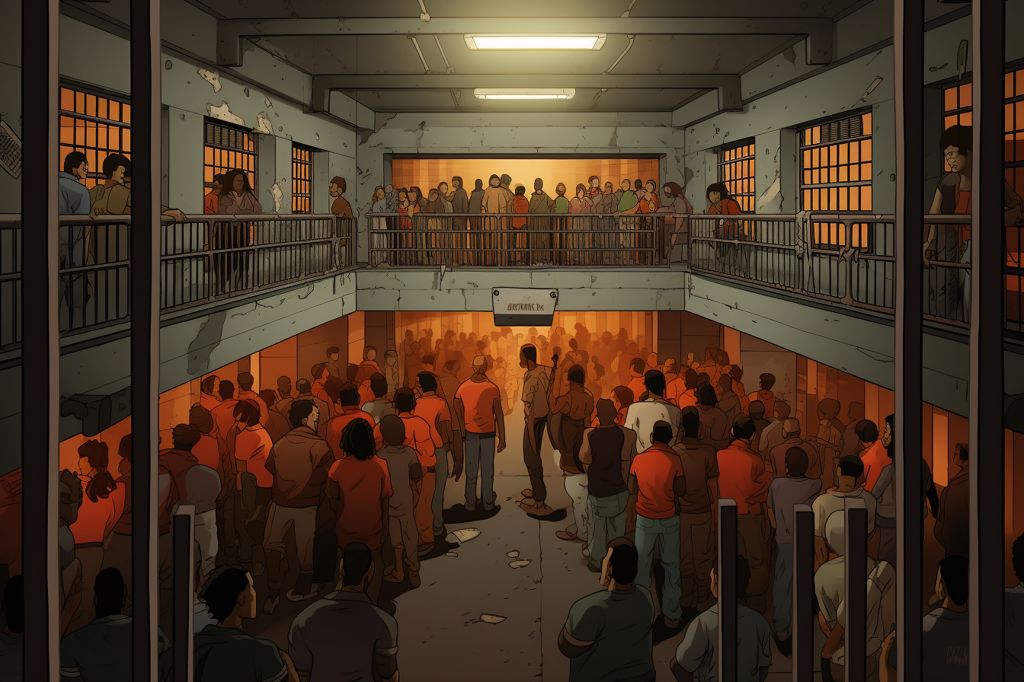South Africa is currently experiencing a concerning level of overcrowding in its correctional facilities. In an effort to address this issue, President Cyril Ramaphosa has approved the remission of sentences for non-violent offenders.
Overcrowding in Correctional Facilities
The current occupancy rate in the country’s 243 correctional centres and 218 community centres is at a staggering 143%. This overcrowding has a direct impact on inmate health, security, and management. Additionally, it hinders the Department of Correctional Services’ ability to provide adequate development and rehabilitation programs.
The Vital Role of Remission of Sentences
The remission of sentences is a vital part of the justice system. Section 84 (2) (J) of the Constitution supports its implementation. However, it’s essential to note that certain offenders are excluded from this special remission criterion. These include offenders convicted of sexual offences, tampering with critical infrastructure, serving life sentences, and being declared dangerous criminals.
Eligibility for Remission of Sentences
Low-risk offenders in the excluded categories may still be eligible for a 12-month remission. Eligible offenders convicted of non-violent and nonsexual crimes can receive up to 24 months of remission after completing the pre-release program and risk assessment. They must also provide fingerprints and DNA samples for comparison to the South African Police Service database.
Expected Results of Remission of Sentences
This decision is expected to result in the deportation of 3,064 foreign nationals serving short-term sentences, under the guidance of the Department of Home Affairs. Additionally, it will alleviate overcrowding in correctional facilities by releasing approximately 9,488 inmates and a further 15,000 inmates who are currently under correctional supervision and parole. Most beneficiaries of this decision are already serving parole or under correctional supervision in their communities.
Implementation of Special Remission
The exploration of special remission began on 24 April 2023, when the country lost around 1,112 bed spaces due to dilapidation in most correctional centres. To ensure effective implementation, a joint technical task team, composed of Justice, Crime Prevention, and Security cluster departments, will oversee the process over ten months. The Department of Home Affairs will lead the aspect of foreign nationals.
Importance of Rehabilitation and Reintegration
The release of non-violent offenders back into their communities will demand careful monitoring and support to ensure successful reintegration and reduce the risk of recidivism. It is crucial for the government and society to work together in implementing effective rehabilitation programs and providing offenders with the necessary resources, tools, and opportunities to rebuild their lives and contribute positively to their communities.
A Step Towards a Better Justice System
The decision to grant remission to non-violent offenders in South Africa is a necessary step towards improving the justice system and addressing the pressing issue of overcrowding in correctional facilities. By focusing on non-violent crimes, the government can prioritize development and rehabilitation programs and create a safer environment for all inmates. This move also demonstrates South Africa’s commitment to a just and humane criminal justice system, which respects the rights of both victims and offenders. This collaborative approach will not only promote a fair and efficient justice system but also contribute to a safer and more harmonious South Africa.








